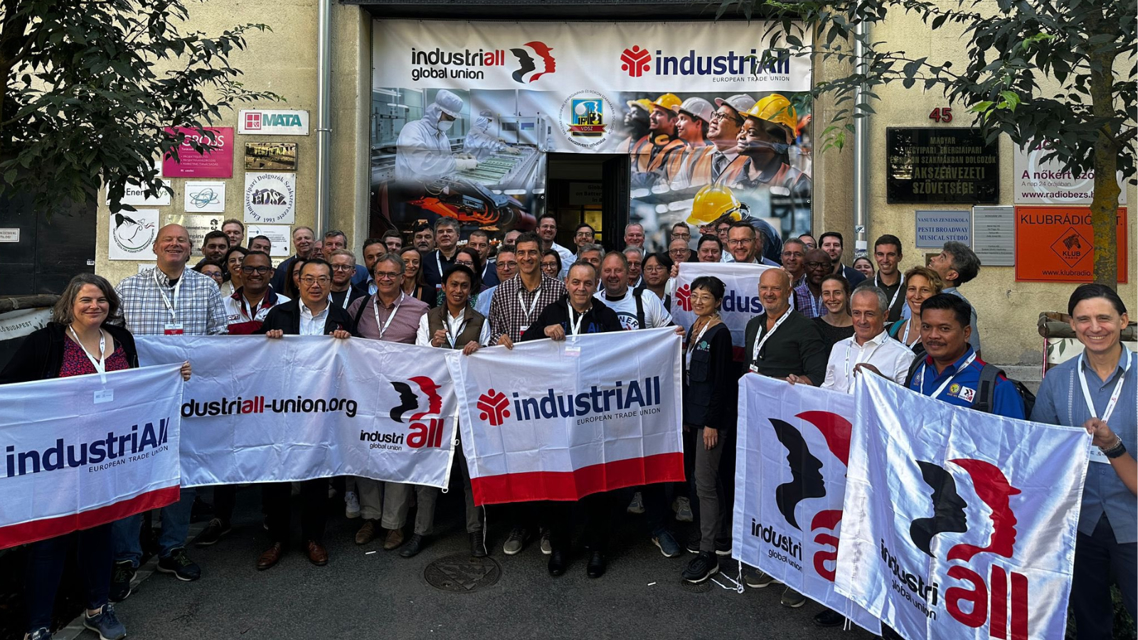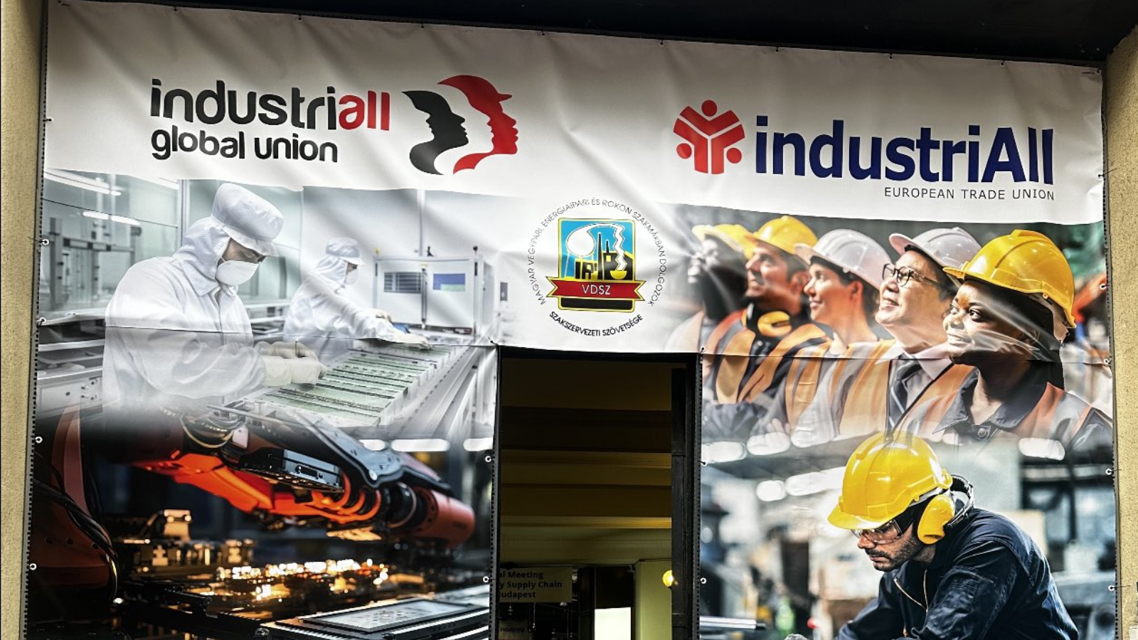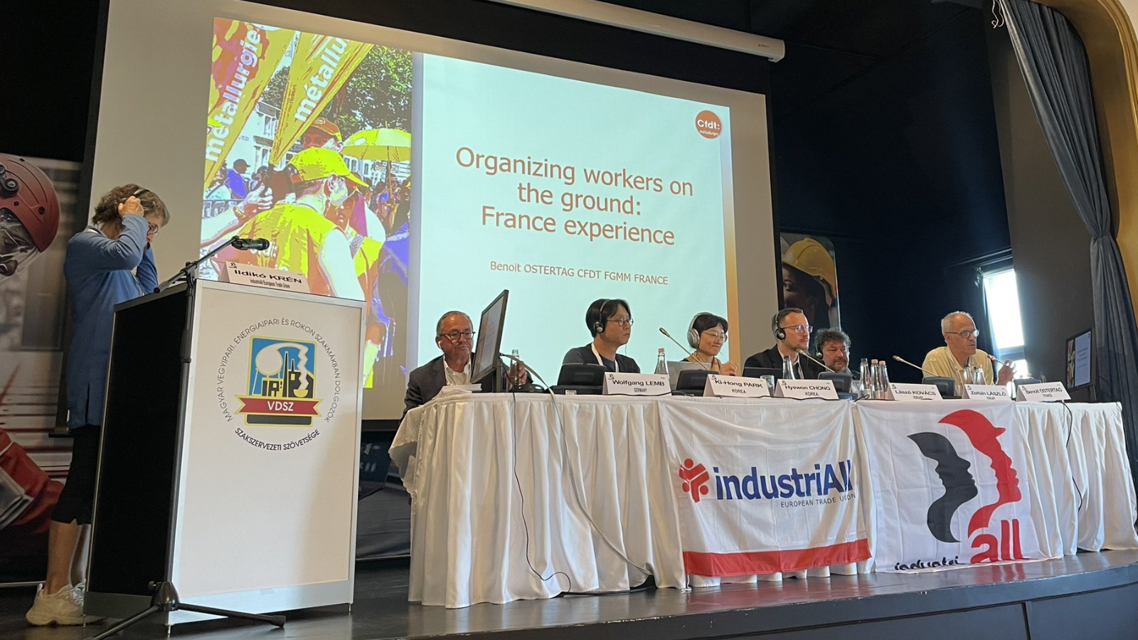The battery supply chain is growing and expanding fast, fueled by addressing climate change and the increasing demand for electric vehicles (EV), and with that the massive transition of jobs and skills. In Europe alone, 800,000 new battery-related jobs will likely be created in coming years. Globally, a total of 10 million jobs in the battery value chain is expected to be created around 2030, more than half of them in emerging countries. Most of the workers in the sector are newly recruited and trained, including migrant workers, and others retrained and upskilled from existing jobs that are disappearing.
Every region, every sector makes up different parts of the battery supply chain, from mining and refining to production and assembly. The fight for the main raw materials (cobalt, lithium, copper and nickel) leads to human rights’ violations and unacceptable environmental consequences: child labour, destruction of the living environment of indigenous peoples, ecological destruction, water shortage etc. The automotive industry has a relatively high level of unionized workers, but the number decreases along the supply chain, where workers’ rights violations increase. Many workers across the battery supply chain remain unorganized or are pushed from decent into precarious ones.
IndustriALL Global Union and industriAll European Trade Union represent workers throughout the entire battery supply chain. This opens the opportunity for a comprehensive, cross-sectoral and sustainable supply chain strategy to improve the effectiveness of due diligence processes, the enforcement of workers’ and human rights, and the promotion of decent working conditions.
“This industry is growing rapidly and we need to strategize on how unions will keep up and organize workers. We need to find practical ways to organize our workers and build our solidarity. We also need policy tools, and we need to make sure that workers are protected,” says Kan Matsuzaki IndustriALL assistant general secretary.
“We need to organize, we need to ensure that we have industrial power. We need a seat at the table, we need to be part of the discussion. Unions can’t come in at the end when politicians and multinationals have already taken decisions. We need to be part of the process from the start,” said Judith Kirton-Darling industriall Europe Acting Joint General Secretary.
In the coming years, IndustriALL and industriAll European will focus on:
- Union alliance to bring together unions across the supply chain to organize workers and promote fundamental workers’ rights and decent work;(e.g. battery-EV manufacturing in Europe, North America and Asia Pacific, European battery organising project, lithium triangle between Argentina-Bolivia-Chile, battery supply chain in Indonesia, mining network in sub-Saharan Africa)
- Just Transition that develops sustainable industrial policies and an adequately funded supply chain strategy, provides worker-centred labour adjustment programmes, replaces affected jobs with decent and unionized jobs, and enhances North-South and South-South cooperation; (e.g. European Battery Alliance, IA-IAE joint programme on Just Transition for industrial workers, pilot project on implementation of Just Transition practice guide)
- Human Rights Due Diligence that allows unions to hold multinational companies in the battery supply chain to account using accessible legal mechanisms; (e.g. ILO core conventions, Due Diligence laws in Europe, IRMA standards, GBA battery passport)
- Social Dialogue for strong (sectoral) collective bargaining to improve working conditions, wage levels and health and safety throughout the fast-growing supply chain by building workers’ power; (e.g. implementation of the IAE-IAG statement on deepening cooperation in Building Trade Union Power, European Minimum Wage Directive)
- Effective worker information, consultation and participation that enables unions, companies, governments and key stakeholders to engage in the formulation of national policies that take account of workers’ interests.
- Gender equality: a gender-responsive strategy to ensure that women have their share of well-paying jobs, receive equal pay for work of equal value and eliminate violence and harassment in the battery-related workplace;
- Battery platform, connecting unions and key stakeholders to exchange information, support implementation of HRDD and build worker power throughout the supply chain; (e.g. IRMA, DriveSustainability, Global Battery Alliance, GoodElectronics network, SOMO, etc.)



